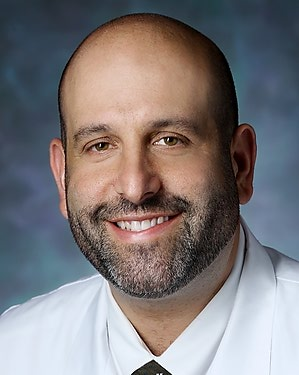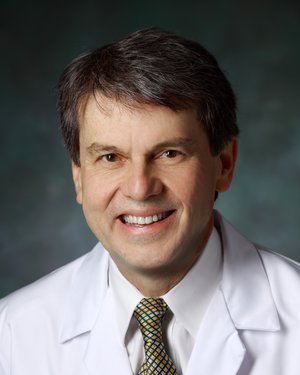Research Lab Results
-
Larissa Shimoda Lab
Research in the Larissa Shimoda Lab focuses on several important topics within pulmonary and critical care medicine. We primarily study pulmonary arterial responses to chronic hypoxia as well as hypoxic pulmonary vasoconstriction and oxidant-mediated lung injury. Our recent research has included investigating the effects of chronic hypoxia on pulmonary circulation and the ways in which hypoxia-inducible factors impact pulmonary vascular responses to hypoxia. We have also studied vascular remodeling in patients with pulmonary hypertension.
-
Lana Lee Lab
The Lana Lee Lab works to create successful patient-centered care strategies for young individuals living with HIV. We focus in particular on decision making in HIV treatment for youth and on the availability of services for young people living with HIV in the United States and Uganda.
-
Lamichhane Lab
Our research focuses on the biology of the peptidoglycan of Mycobacterium tuberculosis, the organism that causes tuberculosis, and Mycobacteroides abscessus, a related bacterium that causes opportunistic infections. We study basic mechanisms associated with peptidoglycan physiology but with an intent to leverage our findings to develop tools that will be useful in the clinic to treat mycobacterial infections. Peptidoglycan is the exoskeleton of bacteria that not only provides structural rigidity and cell shape but also several vital physiological functions. Breaching this structure is often lethal to bacteria. We are exploring fundamental mechanisms by which bacteria synthesize and preserve their peptidoglycan. Although our lab uses genetic, biochemical and biophysical approaches to study the peptidoglycan, we pursue questions irrespective of the expertise required to answer those questions. It is through these studies that we identified synergy between two beta-lactam antibiotics against select mycobacteria. -
Laboratory of Vestibular NeuroAdaptation
The Laboratory of Vestibular NeuroAdaptation investigates mechanisms of gaze stability in people with loss of vestibular sensation. A bulk of our research investigates motor learning in the vestibulo-ocular reflex (VOR) using different types of error signals. In addition, we investigate the synergistic relationship between the vestibular and saccadic oculomotor systems as trainable strategies for gaze stability. We are particularly interested in developing novel technologies to assess and deliver improved rehabilitation outcomes. We are validating a hand-held computer tablet for assessment of sensorimotor function and participating in a clinical trial comparing traditional vestibular rehabilitation against a device developed in our laboratory that can unilaterally or bilaterally strengthen the VOR. Members of the lab include physical therapists, physicians, engineers, statisticians and post-doctoral fellows. The laboratory is supported by generous grant funding from NASA, the NIH, the DOD and grateful patients -
Laboratory for Computational Motor Control
The Laboratory for computational Motor Control studies movement control in humans, including healthy people and people with neurological diseases. We use robotics, brain stimulation and neuroimaging to study brain function. Our long-term goals are to use mathematics to understand: 1) the basic function of the motor structures of the brain including the cerebellum, the basal ganglia and the motor cortex; and 2) the relationship between how our brain controls our movements and how it controls our decisions. -
Lynette Mark Lab
The Lynette Mark Lab primarily studies topics within the field of anesthesiology. Our team also researches various aspects of patient safety, including best practices for patient safety reporting systems.
-
Lima Lab
The Lima Lab’s research is concentrated on the development and application of imaging and technology to address scientific and clinical problems involving the heart and vascular system. Specifically, our research is focused on developing magnetic resonance imaging (MRI) contrast techniques to investigate microvascular function in patients and experimental animals with myocardial infarction; functional reserve secondary to dobutamine stimulation and myocardial viability assessed by sodium imaging; and cardiac MRI and computed tomography (CT) program development of techniques to characterize atherosclerosis in humans with cardiovascular or cerebrovascular disease. Current projects include: • The Coronary Artery Risk Development in Young Adults (CARDIA) Study • The MESA (Multi-Ethnic Study of Atherosclerosis) Study • The Coronary Artery Evaluation using 64-row Multidetector Computed Tomography Angiography (CORE64) Study Joao Lima, MD, is a professor of medicine, radiology and epidemiology at the Johns Hopkins School of Medicine. -
Lonny Yarmus Lab
Clinical trials conducted in the Lonny Yarmus Lab focus primarily on minimally-invasive diagnostic testing for patients with lung cancer and local therapy options for malignant airway obstructions. We investigate ways to improve the early diagnosis of lung cancer, as well as the treatment of later-stage cancer, using the least invasive methods possible. We are also part of the LIBERATE clinical study for patients who have difficulty breathing and suffer from severe emphysema.
-
Lee Bone Lab
Research in the Lee Bone Lab uses community-based participatory approaches to promote health in underserved urban African-American populations. We conduct randomized clinical trials on cardiovascular disease, diabetes and cancer detection and control in order to test the success of community interventions. We focus in particular on making interventions sustainable and on implementing electronic education to improve communication.
-
Laura Hummers Lab
The Laura Hummers Lab participates in a number of clinical trials and clinical investigations at the Scleroderma Center at Johns Hopkins. We have a particular interest in the predictors of outcomes in scleroderma. We’ve established a prospective cohort of 300 scleroderma patients to identify incident vascular outcomes in the hopes of identifying new biomarkers for disease development and progression.




